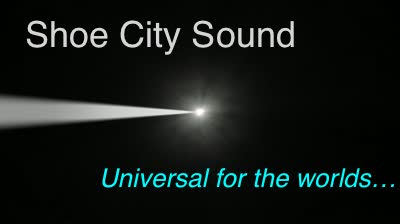
Stoneman
|
2/18/2013 9:10:08 PM
Thank you so much for your kind words and for listening to my work Richard. Actually, I am not a great musician at all. I am just a decent studio musician. My first musical instrument was Saxophone. I fell in love with that instrument because my grandmother use to listen to Jazz all the time and there was something about Sax that drew me in. Once I got my hands on one I was determined to learn how to play and it came very easy to me. I realized immediately that I had an aptitude for playing instruments as I migrated very quickly to Trumpet and Flute. By age Eleven I was playing in a marching band and a small Jazz Quartet. I came down with double Pneumonia and my left lung collapsed. They told me that I would never be able to play wind instruments again as the strain could kill me. To this day I still play Sax and trumpet but only very sparingly. That’s why you hear a little of that in my recordings.
Anyway, I picked the guitar in my early teens. I couldn’t afford lessons so I started hanging out with a group of people that the neighborhood had proclaimed to be wino’s. They hung out by the liquor store drinking and playing music all day. I just dragged a chair down there, sat down and started playing with them. They called me “Young Blues” because I could barely lift the guitar I was playing. They were actually retired musicians that had toured the Chitlin Circuit in the 30’s 40’s and 50’s playing the Blues with some legendary artists like Ellington, Basie, Waters, Holliday and a whole slew of people that no one has ever heard of. The one thing they stressed was pocket playing. They taught me that if you could play a pocket you could play anything with anyone. They actually believed that pocket playing was much more difficult than playing lead. I sort of adopted that mantra. Sometimes we would play in an old basement where there was a set of drums. They would make me sit on the drums and keep time by hitting the snare. Before I knew it I was playing drums as the rest of it just kind of came to me. In Junior High school I started playing Bass because a friend of mine started a band and he only needed a Bass player. So I bought one at a pawn shop and talk myself how to play it good enough to play in the band. I learned how to play pockets on the Bass. Nothing fancy. Just pockets! That is still all I can play on that instrument.
By age Fifteen I started touring with local bands. We went as far South as Alabama and did regular gigs in Vegas. I played whatever instrument they needed for the bands. I just wanted to play. Quite often I had to wait outside in between sets because I was too young to be in those smokey dank sin dens. But it was a blast because I was doing what I loved. One day the lead singer got sick and in order to save the gig I volunteered to sing. I knew all the songs but had never sung for them before. After that gig they wouldn’t let me touch an instrument unless I was teaching them how to play my original songs. I was officially a front man. But I missed playing instruments.
I didn’t start playing Keys until the early 70’s. I became infatuated with the new “Minnie Moog Model D” synth sound and as soon as my hands touched one I knew I had found an instrument made for me. It was like magic as it turned out that Keys were the easiest instrument for me to learn. This led me to the Emu’s, Prophets and eventually the Yamaha DX7 which exploded on the scene when Funk music was big. I was touring with a Gospel/Latin Band when I started playing percs like Conga’s, Timbales, and Bongos. I had to do something when the solo’s were being played.
Anyway, that is a brief history of how I started playing instruments. But like I said, I am no great musician. I just know how to play pockets in the studio. After my stroke in 2003 I retired from touring and started concentrating on production, songwriting and recording Engineering. I actually went back to school and earned credentials in Recording Arts and Music Industry studies. I was the oldest dude in my graduating class (2006) but I had a 4.0 GPA. That was the first formal training I had ever had in music. Most of my training came on the job. It may sound impressive (as you put it) in my recordings but you must remember that in the studio, you get to do it over and over until it is right. Also, I cannot afford to hire other musicians so I do it all myself. Plus, I like me so there is never any of that band drama crap that we all have dealt with. I play so many styles of music because I have been in so many kinds of bands including Jazz, Reggae, Pop, Rock, R&B, Blues, Metal and Ska. In my youthful days I just wanted to play music and I didn’t care what kind of music it was or what instrument they wanted me to play. I love a challenge. Right now I am teaching myself how to play slide guitar.
Much Respect Back To You Richard. I am also a big fan of your work man.
|

|

Stoneman
|
2/19/2013 6:10:49 PM
My bad D. ,
A “pocket” is old school terminology for playing the main structure of a song rather than the fun accompaniments and solos. For instance, back in the day a rhythm guitar player was called a pocket player. If we were auditioning a player we would stipulate that we needed a pocket player so that the players who wanted to play lots of leads would not apply. If a player auditioned by playing lots of leads we would say: “That was cool, but can you play in the pocket?“. The truth of the matter is that a lot of musicians cannot play the pocket or don’t want to play the pocket. Also, horn players who played seconds and thirds were considered pocket players because they never got to play the melody or solos. If we had more than one keyboard player one played a pocket and the other played melody accentuates and comps. Background singers were called pocket singers. If I auditioned for a band as a Bass player I made sure that they knew I was a pocket player which basically meant that I could play the song but don‘t expect me to be all thumbed out like Bootsy or Larry Graham. The terminology could have been region specific to the Los Angeles area. I am not sure but a lot of musicians used that term back in the day. The old farts I hung out with claimed that pocket players were the unsung heroes. The guys that didn’t get any glory but were essential to the band. Many of them had been pocket players and that's why nobody knew who they were.
Their approach to playing music (as it was taught to me) was to build a wall of sound with pocket players. It was important to create a correlative layering of sound. When teaching an original song to the band I would always play the pocket for the other musician and then say, now that you have learned that, you can put some “Stank“ on it. This basically meant that whatever their signature style was could be applied to the pocket I had taught them. Or, I would stipulate that they had to stay in that pocket without any stank. A lot of musicians hated being the pocket player because they didn’t get to expand their creative range. There was a band in L.A. called “Pockets” and their claim to fame was that they brought this huge wall of sound but no one played leads. That's also why they didn't make it because they were boring because there was no flash and no visible star. It was not unusual to go to someone’s rehearsal and hear someone complain that one of the players is not in the pocket. It’s the groove but it’s the boring part of the groove because you play the same thing over and over. I hope I explained that well enough.
Much Respect D.
|

|

Shoe City Sound
|
2/19/2013 7:19:14 PM
Oh yeah, great explanation - and thanks! And by that description, I would have to say that I am a great pocket player haha - I love to play rhythm chords for the whole song. It's so much fun and NO pressure. And that wall of sound I consider to be the necessary groove. Playing in the pocket would seem to be taking a back seat to the flashier stuff, but I've noticed that not just anyone can really do it that great. It has a lot to do with really driving the sound if I'm understanding it right.
Probably everyone else already knew what playing in the pocket is haha - well, ya live - ya learn
I gotta say Stoneman, there was a lot about your childhood that was beyond awful, but there was some stuff that you got to do when you were young that was really amazing!
D
|

|

Stoneman
|
2/19/2013 8:19:41 PM
That's exactly right D.! Pocket players may not be in the limelight but the so called stars would be lost without them. Also, I believe that it is certainly a lot harder to play the pocket. Oh and yes, seems like I learn something new every day. We all do. I remember one time in the 80's I went into San Quentin Prison and there was a lady volunteer there that had been going there every Sunday for over 50 years. She was 92 years old and of course all of the inmates called her grandma. I did a concert and gave the word. Afterwards she came up to me and said that she had learned so much from my sermon. I was like wow! You learned something from me? She said I learn something new everyday Chaplain. It's true that you never get too old to learn something new. One problem with getting old is that your references get out dated. One day my wife and I were in a restaurant and I asked the waitress for a cup of Sanka. She looked at me and said what's that? My wife intervened and said he means decaffeinated coffee. She walked away muttering "why didn't he just say that". My wife and I laughed so hard because she was too young to know that Sanka was one of the first decaffeinated coffees and for many years became the synonym for decaf. The world changes so fast and it makes you feel so old watching it change.
Yes, if I wrote a book about my life I would call it "Bittersweet". I had lots of hardship but I also had some great triumphs. Seems like everything eventually balances out. Hmmmmmm. Bittersweet? I kind of like that title!
Stoneman
|

|